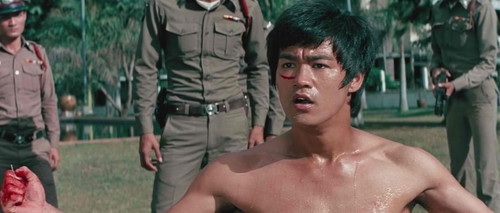Flirting Scholar is a 1993 comedy film directed by Stephen Chow, and the only word that can adequately describe it is absurd. Completely and totally off the wall, pure, unadulterated insanity, the plot was whimsical and did not take itself seriously whatsoever, yet it was extremely fun to watch and hilarious, even with the language barrier. That being said, this was probably the most enjoyable film that I have seen in this class as of yet, followed only by Drunken Master. This film never failed to raise up my expectations for what to come next, then take a comedic turn, going off on an unexpected path and therefore eliciting laughs. By no means was this film needlessly random with jokes thrown into the fray with no sense of correlation or direction, but it seemed to have a perfectly logical (yet completely insane) flow to the film itself. Perhaps this is why the film worked so well; it was completely random in terms of humor but not random in terms of execution. Since this film was so… unique in its style, I do really want to find more of Stephen Chow’s films and see if the absurdity in those will match up to the ones present in Flirting Scholar.
Originally directed by King Hu, Swordsman is a 1990 film based on the one of Louis Cha’s novels. From what I hear, the source material for this movie was very lengthy, so the fact that they managed to fit it into a two hour epic is somewhat amazing. Unfortunately, I thought the film was a bit lackluster, though it did have its high points. Since the source material was so dense, only the most important of parts could be put into the film, leading to a lot of skipping over many parts, allowing things like skips in time, or characters gaining knowledge or experience in very short portions of time and things in that vein. The intermitterary portions where the characters began to sing the Xiaoao Jianghu was a bit… oddly placed too, and I could not really figure out the significance of the piece, but perhaps this too is due to the editing of the material.
However, the fight scenes were pretty interesting in terms of how the characters fought, especially Linghu Chong after he learns from Feng Qingyang, as instead of simply leaping from place to place, he instead does some of acrobatic spinning which looks really impressive in execution. I am sad that King Hu did leave in the middle of production, since his meticulous attention to detail could have really pushed this film to a whole different level, I would like to think.
Directed by Zhang Yimou, House of Flying Daggers is a 2004 film, and probably the most visually appealing film in the class as of yet. The masterful usage of color schemes and art directions are exceptionally uncommon in the films that I have seen, so this was a very welcome change of pace. The sheer amount of care put into each shot is easily felt and I can thoroughly appreciate that. The part that stood out the most to me was probably the finale, since the colors and really using the setting as a way to change the mood of the film was phenomenal, in my opinion. Changing from a forest to a warmly lit forest, to the withering beauty of the fall colors of the open field, and finally to the nearly bone-white and pillar-like birch(?) trees where Captain Jin waits for Mei; such a beautiful use of colors, with their beautiful costumes contrasting nicely against the colors of the backdrop.
My major qualm with this film was the editing though. Some of the scenes lasted much longer than they needed to, having the unfortunate side effect of sometimes turning serious scenes into ones that were awkwardly humorous. It was not like a “hold this scene for a long time to make the audience more intimate with the characters” sort of scene, but ones that just felt as if they overstayed their welcome. That, and the film seemed to take itself too seriously in the romance, which also added an unfortunate humorous element to the film. Romance in itself is never an unwelcome element in a film based around fighting, but the execution in this was something else entirely.
However, if any out there are sticklers for color usage in film, I would highly, highly recommend this film.

.jpg)


